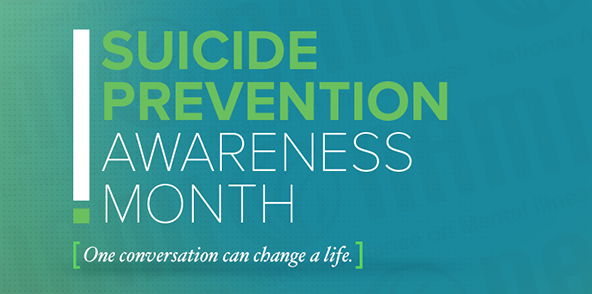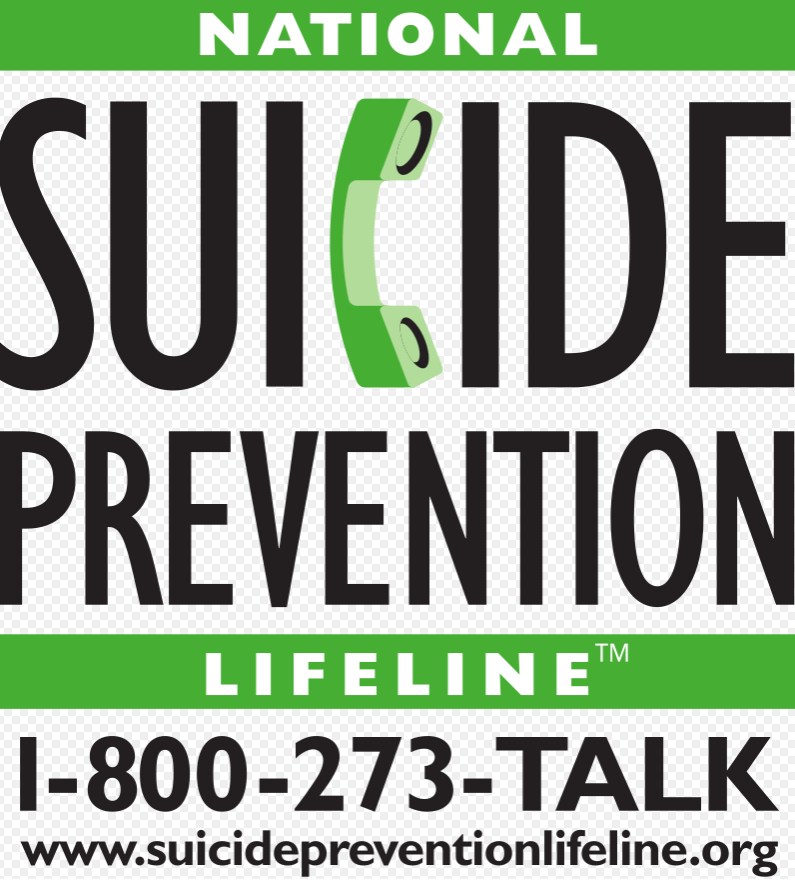 September Is Suicide Prevention Month
September Is Suicide Prevention Month
Suicide prevention is a part of mental health awareness.
There is an average of 123 suicides each day in this country.
Suicide is a national health problem that currently ranks as the tenth leading cause of death in America.
Furthermore, its a second leading cause of death, for ages 10-24 and ages 25-34.
And third leading cause of death for ages 15-24.
Let that sink in………
Suicide is also one of the leading causes of preventable death in our nation.
To create awareness and strengthen the fight against suicide, the entire month of September is designated as Suicide Prevention Month.
Consequently, with the COVID-19 pandemic in our country and around the world, the number of deaths due to suicide have risen.
It is vital to get people assessed and the help they need when you see things are going on with them. Do not just let it go!
There are many organizations in every community that will be of help. The Suicide Hotline is a place to start and the suicide prevention lifeline website:
- 800-273-TALK (8255) or call 911 immediately.
- http://www.suicidepreventionlifeline.org/
In addition, if you know someone who has these symptoms listed below, please make sure they get help.
Warning Signs:
- Increased alcohol and drug use
- Aggressive behavior
- Withdrawal from friends, family, and community
- Dramatic mood swings
- Impulsive or reckless behavior
Suicidal behaviors are a psychiatric emergency. If you or a loved one starts to take any of these steps, seek immediate help from a health care provider or call 911:
- Collecting and saving pills or buying a weapon
- Giving away possessions
- Tying up loose ends, like organizing personal papers or paying off debts
- Saying goodbye to friends and family
Risk Factors:
Research has found that 46% of people who die by suicide had a known mental health condition. Several other things may put a person at risk of suicide, including:
- A family history of suicide
- Substance use. Drugs can create mental highs and lows that worsen suicidal thoughts.
- Intoxication. More than 1 in 3 people who die from suicide are under the influence of alcohol at the time of death.
- Access to firearms
- A serious or chronic medical illness
- Gender. Although more women than men attempt suicide, men are nearly 4 times more likely to die by suicide.
- A history of trauma or abuse
- Prolonged stress
- A recent tragedy or loss
If you encounter someone who is speaking about taking their own life, here are suggestions I found that may be helpful:
- Ask direct questions
Even though it’s hard, ask a person directly if they’re thinking about taking their own life.
- Listen to their answers
People with suicidal thoughts often feel alone, so be sure to let them know that you care deeply about what they have to say.
- Do a safety check
If you are concerned for their well-being, try removing anything they could use to harm themselves, such as alcohol, drugs, medications, weapons, and even access to a car.
- Do not keep this a secret
Let them know you will help come up with a plan that involves telling a professional who can utilize the many services and resources available to help.
- Ensure they seek professional help
Unless you work in the mental health industry, it’s important to suggest they seek additional help from other people, such as a doctor, counselor, psychologist or social worker.
We observe World Suicide Prevention Day each year on September 10th.
It’s a growing problem and the numbers tell a shocking story. Every 40 seconds someone takes their own life according to the World Health Organization (WHO).
That is about 800,000 people worldwide every year — although some estimates put that number closer to 1 million.
“It can be frightening if someone you love talks about suicidal thoughts. It can be even more frightening if you find yourself thinking about dying or giving up on life. Not taking these kinds of thoughts seriously can have devastating outcomes, as suicide is a permanent solution to (often) temporary problems.”
Finally, I felt it was important to share all this information during this month dedicated to the awareness of this incredibly sad, preventable cause of death.
My daughter’s high school friend committed suicide several years ago. This is the only person I know personally. I do know some who have thought about it, and received help.
As a result of sharing this information, my hope is, lives will be spared.
With love, kindness, and compassion,
Connie
Sources:
- National Alliance on Mental Illness (https://www.nami.org/About-Mental-Illness/Common-with-Mental-Illness/Risk-of-Suicide)
- American Foundation for Suicide Prevention (https://afsp.donordrive.com/index.cfm?fuseaction=cms.page&id=1385&eventID=6798)
Video about suicide prevention:






Leave a Reply